Iranian Kickboxer Reportedly Defects To Ask Asylum In Germany

A young Iranian kickboxer who had traveled to Italy for a tournament has left his hotel and reportedly gone to Germany to apply for political asylum.

A young Iranian kickboxer who had traveled to Italy for a tournament has left his hotel and reportedly gone to Germany to apply for political asylum.
Omid Ahmadisafa has received permission from Iran’s boxing federation to travel to Italy, where he left his hotel and never returned, according to Khabar Online website in Tehran. Informed sources believe he might have gone to Germany to apply for asylum.
Several Iranian athletes in the past two years have defected from Iranian national teams and sought asylum in other countries. Some took part in the year’s Olympics in Tokyo as non-state athletes.
One of the main issues forcing Iranian sports people to defect is Tehran’s policy of not allowing them to compete against Israelis. Apparently Ahmadisafa was also forced to lose weight to compete in a lower weight class to avoid an Israeli opponent.
Refusing to compete against an opponent for political reasons is banned in international sports, but various federations have so far given Iran a free pass. Iran also does not allow women as spectators in men’s games such as soccer, basketball and volleyball.
Iranian media say Ahmadisafa is a promising young star in light-weight boxing and kickboxing. He has a gold medal from Asian games and a champion in kickboxing.
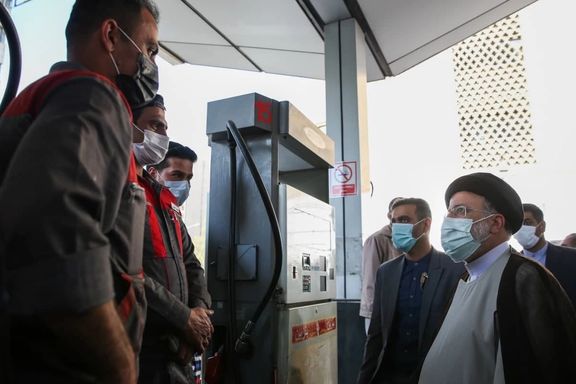
A day after an apparent cyber-attack on fuel stations across Iran reformist media warned the government to be transparent over any plans to raise fuel prices.
Authorities soon acknowledged the problem and said people, who had formed long queues to refuel their vehicles, could still buy gasoline but at the unsubsidized rate of 30,000 rials. This only served to deepen suspicions of a secret plan to increase fuel prices.
The reformist Etemad newspaper said the authorities' insistence there were no immediate plans to increase prices could not convince the public.
"The atmosphere of distrust in the announcements and tweets is so strong that at the time of writing this report, Tuesday evening, there are still queues at service stations and more people are rushing there," Etemad opined. "The reason for such distrust is previous [government] behavior regarding increasing fuel prices."
Smart cards are used for buying gasoline, subsidized by the government, at 15,000 rials a liter, around 12 percent of the price in Iraq, 8 percent of the price in Afghanistan, and 7 percent in Turkey.
"Increase in fuel prices in Iran is inevitable but it should be done without the usual denials and retraction…[instead] honestly, transparently and gradually,” Etemad advised. “There will be costs such as what happened in 2019 if previous approaches continue," the paper noted, referring to nation-wide protests under the previous administration when prices were previously increased.
"Occurrence of this incident while already there were rumors about scraping hidden subsidies and the possibility of fuel price increase reinforced the view that the government is planning to scrap subsidized gasoline," the reformist Arman-e Melli newspaper wrote Wednesday.
Following speculation on social media about stringent increase in fuel prices, government officials, including interior minister Ahmad Vahidi, have vehemently denied such plans. Asked by reporters Monday, head of the Planning and Budget Organization Masoud Mir-Kazemi denied there was provision for a hike in fuel prices in next year's budget bill.
Speaking at the cabinet meeting Wednesday morning, President Ebrahim Raisi (Raeesi) said the aim of Tuesday’s disruption at gasoline stations was “to anger people by causing disorder and disruption in their lives." Raisi calling on the oil ministry to avoid any loss in the supply of subsidized fuel.
Authorities initially said the disruption would end by Wednesday but now expect the resumption of all operations at service stations by Thursday. Supplies in around 3,000 service stations stopped as messages of "cyber-attack" appeared on fuel pump monitors that read the smart cards used for purchasing rationed, subsidised gasoline.
Many economists in Iran have long argued against fuel subsidies, which disproportionately benefit the better-off, in favor of targeted payments to the less well-off. Facing a large budget deficit, the government is looking at reform options over such subsidies, including a the elimination of a cheap exchange rate of 42,000 rial dollar, with a market rate at 276,000 allocated for importing goods such as food, medicine, and animal feed.
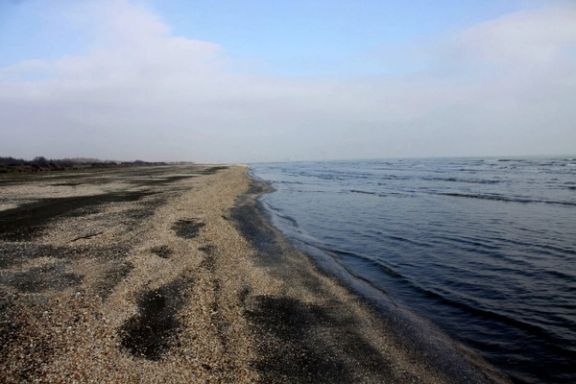
The head of Iran’s meteorological center has said that the level of the Caspian inland sea has dropped by 1.5 meters (5 feet) in the past 26 years.
Behzad Layeghi told local media that the sea level is dropping by an average of 6 cm per year, which is a significant change according to him. Iran has set up monitoring stations along its shorelines.
The Caspian is a salt water inland sea and the largest lake in the world.
Layeghi said that part of the reason is direct human activities such as river water use for other purposes, but the main cause for sea’s retreat of the Caspian is less precipitation. He added that Russian’s Volga River provides 85 percent of the water flow to the Caspian Sea.
The Iranian official said there could be many reasons for less precipitation in the Caspian basin but the most notable is climate change. He added that the huge loss of water can only be explained by climate change and direct human activities could not cause such a drastic change.
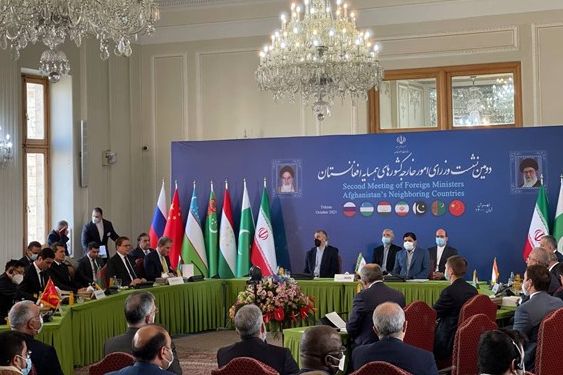
At the opening of a conference on Afghanistan in Tehran, Iran’s foreign minister said that the Taliban are responsible for ensuring security for all citizens.
Hossein Amir-Abdollahian in his opening speech at a meeting of Afghanistan’s neighboring countries and Russia said, “We must emphasize that the responsibility of security for Afghan citizens, as well as security at the borders of this country with its neighbors, first of all lies with the ruling council temporarily in charge of Afghanistan.”
Amir-Abdollahian’s use of the word ‘temporary’ refers to Iran’s position that the Taliban must form an inclusive government in the multi-ethnic, multi-sectarian country.
Iran has also called on the Taliban to provide security after attacks in recent weeks against Afghanistan’s Shiite community, at the same time claiming that the United States is fomenting violence through extremist groups.
The Iranian foreign minister also called on the international community “to pay special attention” to political and humanitarian problems, as well as to terrorism, narcotics trafficking and women’s rights in Afghanistan.
The Iranian foreign ministry had called on the Taliban on Tuesday, ahead of the Tehran conference, to form an inclusive government and prevent violence.
Iran had cautiously welcomed the Taliban takeover in August, saying it was a strategic defeat for the United States.
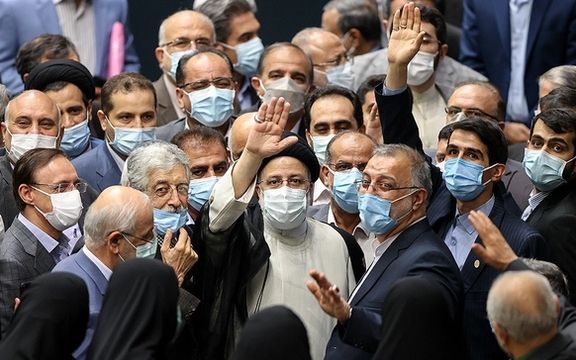
Ali Yazdikhah, an Iranian lawmaker, says it will take another 3-4 months before President Ebrahim Raisi's economic team can begin to implement its policies.
After criticism of government inaction echoed in media in recent days, the conservative lawmaker defending the administration said it needs time to coordinate efforts among officials and agencies. He even went further, suggesting that it is only after that period when ministers will have to be accountable to Majles (parliament).
Yazdikhah made the comment in an interview with Khabar Online website on Tuesday, while the Raisi administration has already been in place for nearly three months without any sign of trying to meet its promises, including building one million homes in 12 months, and addressing the dire economic situation people face.
However, Yazdikhah said he was sure the administration can stand by those promises despite a 50-percent budget deficit, without explaining how that would be possible. However, he acknowledged that it is highly unlikely the government could build even 400,000 houses in one year.
Asked about what the Majles has been doing, Yazdikhah claimed that the lawmakers at the parliament have been working hard, but the media failed to reflect their hard work. However, he agreed with Khabar Online that the parliament has done very little to follow up on the promises made by the Raisi administration to tackle the ongoing economic crises.
Meanwhile, on Tuesday reformist daily Aftab Yazd in an article reviewed some of the impractical suggestions made by cabinet ministers to solve the country's ongoing problems. The daily characterized some of the comments made by Raisi's ministers as "noise pollution at Pasteur Avenue," where Iran's cabinet office is located in Tehran.
Aftab Yazd advised that the administration needs a media adviser to brief the ministers on the impact of their misplaced or outlandish comments and to prevent embarrassments. As an example, the Cultural Heritage Minister suggested last week to dig water wells next to Cyrus the Great’s 2,500-year-old tomb revered by the nation. The minister later tried to walk his comment back, but the damage was done. The daily added that denying such comments is always less effective than the initial comment or action that leads to the erosion of people’s trust in the government.
As an example of lofty statements by top officials, the daily referred to remarks by Industry Minister Reza Fatemi Amin who said recently: "We will manufacture so many cars next year that the people will not have to wait in line." The minister also promised a gradual reduction in car prices. This, the daily said, was like the promises made earlier this year to produce so many Covid-19 vaccines to saturate the markets in Iran and to export the surplus. Those who made this promise, admitted later that all their planning was wrong, the paper said.
Mr. Amin also promised to put an end to the Iranian economy's need for the US dollar. The daily said the claim could have only been made by an official in a country whose national currency was not critically devalued. Iran’s currency has lost its value ninefold since 2017.
Aftab Yazd also highlighted another comment by Khandouzi about the need to finish incomplete projects and said: "Please finish these incomplete projects before starting new ones," and stressed that "the economy minister certainly knows that finishing the incomplete projects takes at least 12 years and needs a budget in excess of hundreds of trillion of rials."
Last but not least, was a comment by Central bank Ali Salehabadi who has said, "Iran has left behind the recession." Referring to multiple serios economic challenges and calls to hasten the process of taking a loan from the International Monetary Fund, Aftab Yazd asked "How exactly did you leave the recession behind?"
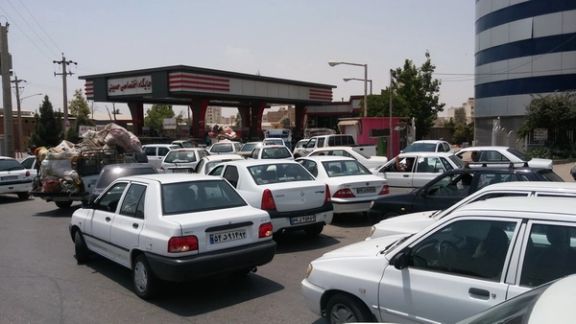
Iran's state media have said that a cyberattack caused massive disruption at gas stations across the country on Tuesday, as special smart cards stopped working.
With speculation rampant on social media, Nour News, a website close to the Supreme National Security Council, denied any ploy by the government to soften up public opinion for a gasoline price increase. But almost immediately social media was full of rumors that the government was testing to see public reaction to a possible price increase. Drivers rushed to gas stations to fill their tanks, even if they did not any fuel.
Videos posted on social media Tuesday showed long queues in front of petrol stations. Distribution of cheaper, rationed petrol, which depends on the use of smart cards, had been stopped, with motorists obliged to buy unrationed gasoline at twice the price. By afternoon, authorities said they were working to resume rationed sales at designated stations.
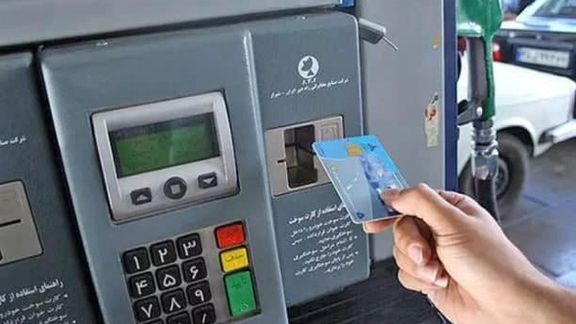
Simultaneously, some electronic road signs were hacked to show messages like "Khamenei, Where is our gasoline?", a question addressed to Supreme Leader Ali Khamenei in Esfahan.
Another sign announced "free gasoline at Jamaran service station," referring to where the leader of the 1979 Islamic Revolution Ruhollah Khomeini lived before his death in 1989. During the 1979 revolution Khomeini was promising Iranians free electricity, water and a cash share of the oil export income.
The developments echoed July’s disruption to Iran’s railways, when information boards in train stations announced “Long delays due to cyberattack” and advertised the telephone number of Khamenei’s office. Similar attacks hit Mashhad and Tabriz airports in 2018.
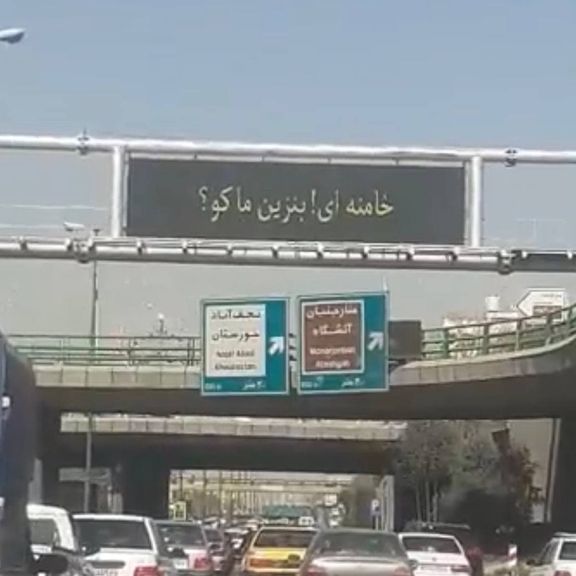
But the disruption also comes as Iran enters the month of Aban, the anniversary of the mass protests of November 2019, when hundreds were killed, thousands arrested and the Internet largely shut down for a week.
No group claimed responsibility for the disruption to gas stations. Mehdi Mahdavi-Azad, a political commentator, told Iran International it was too early to say if this was an Israeli attack, but noted that both last November’s killing of nuclear scientist Mohsen Fahkrizadeh and April’s attack on the Natanz nuclear site, both widely attributed to Israel, had “serious repercussions” for Iran’s security services.
“Now even Mohsen Rezaei (former Revolutionary Guard commander) says there is a massive ‘bug’ and enemy infiltration in Iran’s security forces,” Mahdavi-Azad said.
Fars news agency, affiliated to the IRGC, attributed Tuesday’s gas-station disruption to "anti-revolutionaries" and opposition media.
The Iranian Students News Agency (ISNA), the first Iranian media outlet to report the attack Tuesday morning, published a picture showing the telephone number of Khamenei's office on a service station monitor. But the agency removed the report from all its portals and social media after a few minutes, claimed that it had itself been hacked.